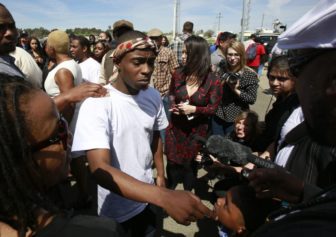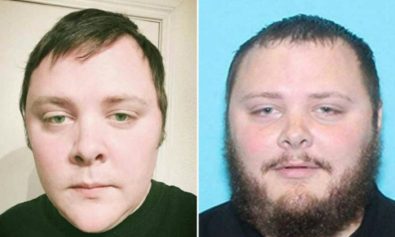In this season of racial violence, the public finds itself exposed to real-life scenes of police brutality and gun violence, church burnings, white supremacist massacres and funerals of massacre victims through viral media and the 24-hour news cycle. Moreover, daily exposure to this racism takes a psychological toll on those who are exposed to it, causing PTSD, or post-traumatic stress disorder, which lingers even after the events have subsided, according to a number of reports.
The Mayo Clinic defines PTSD as “a mental health condition that’s triggered by a terrifying event — either experiencing it or witnessing it. Symptoms may include flashbacks, nightmares and severe anxiety, as well as uncontrollable thoughts about the event.” The condition is associated with rape and torture victims, prisoners placed in solitary confinement, survivors of car accidents, soldiers who have experienced war, and those who have suffered through genocide.
As Linda Goler Blount, president and CEO of the Black Women’s Health Imperative, wrote in The Root, July is National Minority Mental Health Month. She offers that watching repeated acts of violence is a source of stress and trauma in Black women. “Research has shown that stress and trauma from racially motivated events create reactions in Black women that are similar to post-traumatic stress disorder,” Blount said. “These reactions include depression, lack of sleep, anger and an inability to get thoughts about what happened out of one’s mind.”
“The short-term and long-term impact of the stress that racial violence places on Black women is well-documented,” she added. “Allostatic load, the technical term for the physiological consequences of chronic exposure to stress, is at the heart of a number of adverse health effects that disproportionately impact black women, including increased cortisol levels, higher rates of obesity/overweight and higher rates of low birth weight babies. This stress essentially weathers and ages the body, and can lead to premature mortality.” Blount maintains we must ensure Black women have the ability and right to raise their children in a healthy environment. It is about upholding health and wellness for Black women, and a matter of reproductive justice, she suggests.
But for African-Americans, this trauma extends beyond what we see on cable news and viral video online, reflecting the everyday challenges Black people face with institutional racism. Monnica T. Williams, director of the Center for Mental Health Disparities at the University of Louisville, echoes Blount’s concerns. Williams told NPR that many Black Americans experience what mental health professionals call “race-based trauma.”
“We hear in the news about African-Americans being shot in a church, and this brings up all sorts of other things and experiences,” Williams said. “Maybe that specific thing has never happened to us. But maybe we’ve had uncles or aunts who have experienced things like this, or we know people in our community [who have], and their stories have been passed down. So we have this whole cultural knowledge of these sorts of events happening, which then sort of primes us for this type of traumatization.”
In addition, microaggressions, or routine slights such as Black people being followed by security guards in a department store, or a white woman clutching her purse in an elevator when a Black man enters, can trigger stress. In some cases, the trauma is created when victims feel helpless to stop it, or believe the discrimination is persistent. Commonly, those who are exposed to this type of racial oppression respond through violence.
Within the context of Black people, another type of defense mechanism is forgiveness, faith and justice, according to Dr. Isaiah B. Pickens, a licensed clinical psychologist and founder of iOpening Enterprises. In Huffington Post Black Voices, Dr. Pickens wrote that for the families of the Charleston massacre victims, “forgiveness provides a pathway for restoring a sense of wholeness that the traumatic event tries to steal. The forgiveness given in the courtroom was likely more about healing for the families than blind willingness to accept the act of a killer. Despite the circumstances that continued to surround these families, forgiveness and faith provided a secure connection that made the unknown future more manageable.”
Race-based trauma has a profound effect on Black people, and studies suggest trauma is intergenerational and inherited, with memories passed along through the DNA. For example, as reported in the BBC in 2005, a study in the Journal of Clinical Endocrinology and Metabolism found that pregnant women who experienced the 9/11 World Trade Center attacks passed on biological signs of stress to their babies. The children, when tested at a year old, had low levels of the stress hormone cortisol, as did the mothers—a sign of PTSD. Another study from Columbia University revealed that a third of New York schoolchildren suffered mental disorders following the World Trade Center bombings. Further, in the six months following the terror attacks, a quarter experienced at least one of six anxiety disorders.
For populations that have experienced years and even centuries of trauma, the implications are both disconcerting and illuminating. Black people were kidnapped and thrown in the bowels of slave ships, millions not making it through the Middle Passage, and for those who did, they emerged on the other side, finding themselves in a regime of forced labor and torture. The evidence is clear, and can empower Black people as we struggle to fight and end racism, and safeguard our mental health and well being in the process.


